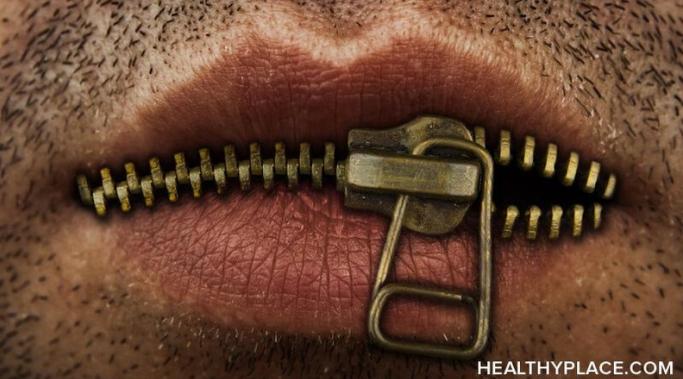My son, Ben, who lives with paranoid schizophrenia, is in the process of rebuilding his life. After years of feeling buried under symptoms, distracted by hospitalizations, rejected from opportunities, and feeling left behind by friends whose lives had followed more predictable paths unfettered by mental illness, he is also (dare I say it? Yes!) reclaiming his future.
So far, so good.
Living with Mental Illness. Steps toward Recovering Life.
Reclaiming his future. How delicious. How marvelously hopeful. And it's a phrase I heard echoed this week at a breakfast briefing of the International Center for Clubhouse Development (ICCD) in New York City. I love this phrase, because it's not only full of hope, it is full of truth - for those who manage to find their way to a Clubhouse, embrace its community, and take advantage of its opportunities.
Mental Illness in the Family
I not only dream for a world someday without stigma and with proper treatment for mental illness - I also hope for it. And, for that to happen, we need each other. Reflecting the theme of the recent NAMI Mercer (New Jersey) annual Harvest of Hope conference, we must work together to plant, nurture, and harvest the seeds of hope.
Another "Tragic Drama" re Schizophrenia?
On day three of Mental Illness Awareness Week, this news from the film world: another movie is being planned that will focus on a true story of someone diagnosed with schizophrenia - and, of course, the tragic results.
Because, I suppose, that is way more interesting to the viewing public than a person with treated schizophrenia, who has the courage, patience, and strength to pull his or life back together after a devastating diagnosis and numerous crises.
I recently participated in a wonderful panel called "Self-Stigma Solutions" alongside three people who live not only with mental illness but also with the mental health stigma that comes along for the ride - both external stigma and internal self-stigma. Each person shared the messages they heard, once diagnosed:
"your life is over"
"you'll never amount to anything now"
"you'll never have friends"
"you may as well just give up"
Is living independently the right goal for everyone? Whether or not you live with mental illness, I think the answer is: no. For some? Sure. For others? Disaster - or at least not the ultimate goal.
Dangers of Sudden Independence
One year ago my son Ben "graduated" rather suddenly - too suddenly - from his place in a group home with 24-hour supervision to his very own apartment. Within one month, we needed police intervention to remove him from that same apartment, where he had isolated himself in confusion and fear after missing his meds for a couple of days - and most likely cheeking them whenever he wasn't closely watched before that.
Why? Certainly the rug was pulled out from under him way too fast - whoosh! You now are expected to function without structure, community, or purpose. Good luck with that - but also, for Ben (who is a very social person, even with his schizophrenia), he was, well, lonely.
Sometimes you've just got to say the word: suicide.
Suicide is Preventable
Monday is World Suicide Prevention Day and if having the conversation saves even one life, it's worth breaking through the fear of "rocking the boat." Rock away.
Although dealing with my son Ben's schizophrenia has been no picnic, and at times I have feared for his life via accident or attack, we know we are lucky in that he has only spoken of suicide once, in the early onset phase of his illness 15 years ago. He tells me now that he was only trying to get my attention. Mission accomplished.
This is Ben's journey, too.
That's what I sometimes need to remind myself.
Mental Illness and Stigma
Sure, I have become the family spokesperson for our experience with mental illness, since writing a book and this blog about our journey "from chaos to hope" with schizophrenia. Still, when people ask me to come and speak, either in person or in the media, about the issues associated with our situation, they sometimes ask if Ben will come and speak too.
The answer is: No. Not yet, anyway. And I can only hope that Ben's decision is not only respected, but understood.
When my son, Ben, was in the first stages of recurring psychosis from schizophrenia, we were waiting for him to get "sick enough" to finally earn a bed in a psychiatric unit (don't get me started on this). During that period, we had many encounters with our local police officers while Ben, and the rest of the family, were in crisis.
I am so happy that these officers were trained in mental health crisis intervention. I am thankful for their kindness and empathy toward Ben, Ali and me which made our traumatic situation more bearable. Even more importantly, their CIT (Crisis Intervention Training) made it possible to avoid the trauma-upon-trauma pile-up of emotions that could have escalated the crisis instead.
Answer: a lot.
At least, given the opportunity, respect and resources, we can learn. So can anyone who loves someone with a mental illness.
Last week I had what I thought was a terrific idea: why not get a parent's perspective on the recent tragedy in Aurora, the public perception of schizophrenia, and the value of treatment for mental illness? After all, family members live the experience of seeing a loved one's decline into mental illness, and (if we are informed, supported, and -let's face it - a little bit lucky) the benefits of proper treatment.
Schizophrenia expert? Not just an M.D.
Last night we finally sat down to watch the first episode of Perception,a new television series on TNT starring Eric McCormack as Dr. Daniel Pierce, a professor of neuroscience with a brilliant mind – and schizophrenia. Because of this mental illness, he sees things in a different light, evidently extremely useful for solving crimes.
How I could wish that my son Ben's hallucinations were so helpful.
But this is reality.
Perception vs. Reality
I tried to watch the pilot episode with as open a mind as possible. After all it is just a TV show, and it is nice to see someone with schizophrenia be the hero for a change. Still, I wonder about misconceptions being perceived as reality by those who know woefully little about schizophrenia as it is - including Ben himself.
We know what happened, but not why. We mourn the victims, hug our loved ones to us, and will think twice before walking into a movie theatre for awhile.
The Batman massacre in Aurora, Colorado. Unspeakable violence. Haunting pictures of a grieving father, a critically injured mother who cannot yet be told that her 6-year-old child is one of the victims - and a young, academically-gifted young man now sporting fire-engine-red hair and a (let's just say it) really creepy smile.
And again, the questions:
How could this have happened?
What could have led up to this horrible, terrifying, unspeakable act?
And - as we ask each time this happens - Could it have been prevented? Why did no one see the signs?
And, for me, the gratitude that my own son's mental illness is diagnosed, treated, and no longer defines all of his actions.









